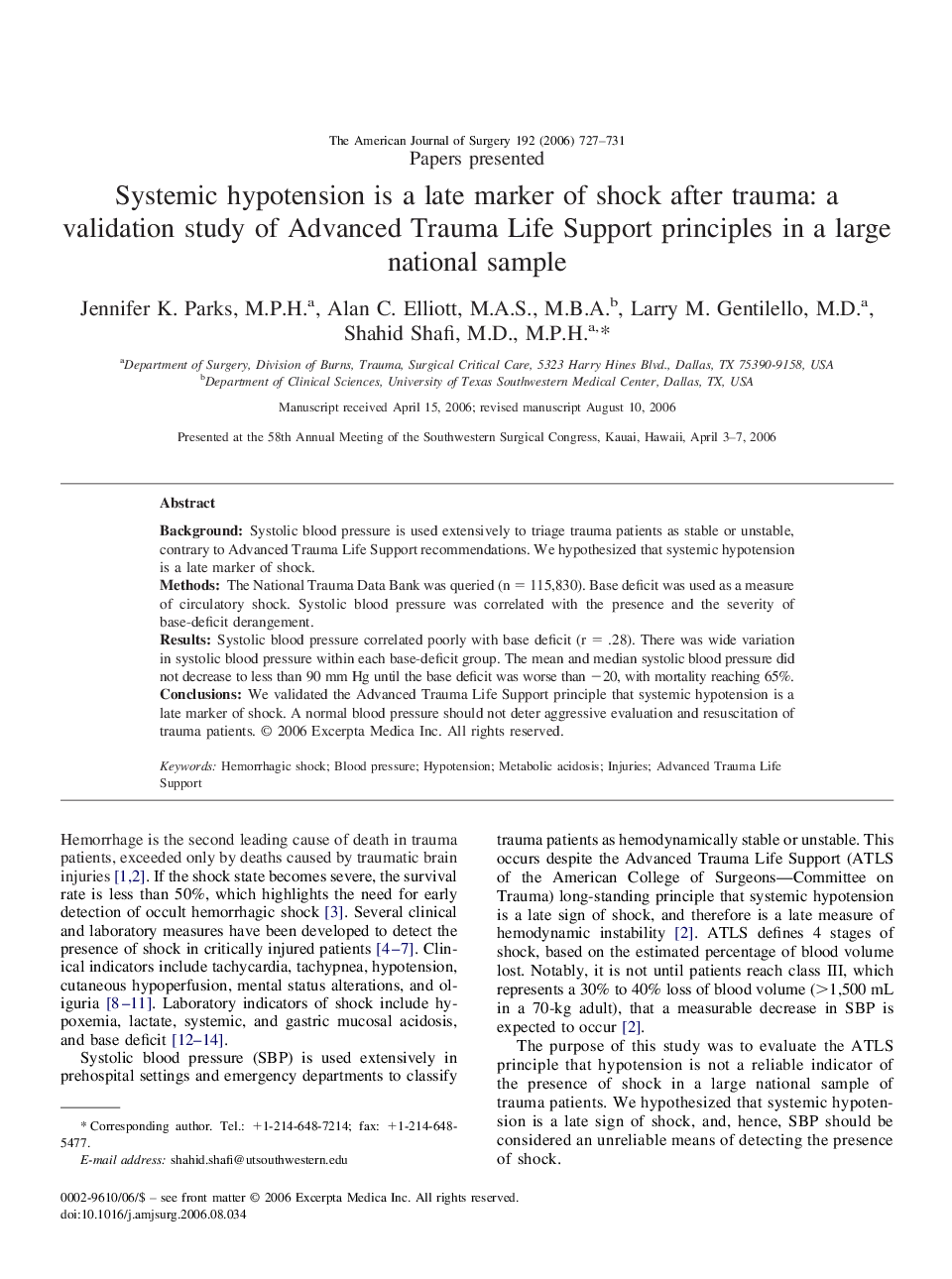| Article ID | Journal | Published Year | Pages | File Type |
|---|---|---|---|---|
| 4281737 | The American Journal of Surgery | 2006 | 5 Pages |
BackgroundSystolic blood pressure is used extensively to triage trauma patients as stable or unstable, contrary to Advanced Trauma Life Support recommendations. We hypothesized that systemic hypotension is a late marker of shock.MethodsThe National Trauma Data Bank was queried (n = 115,830). Base deficit was used as a measure of circulatory shock. Systolic blood pressure was correlated with the presence and the severity of base-deficit derangement.ResultsSystolic blood pressure correlated poorly with base deficit (r = .28). There was wide variation in systolic blood pressure within each base-deficit group. The mean and median systolic blood pressure did not decrease to less than 90 mm Hg until the base deficit was worse than −20, with mortality reaching 65%.ConclusionsWe validated the Advanced Trauma Life Support principle that systemic hypotension is a late marker of shock. A normal blood pressure should not deter aggressive evaluation and resuscitation of trauma patients.
